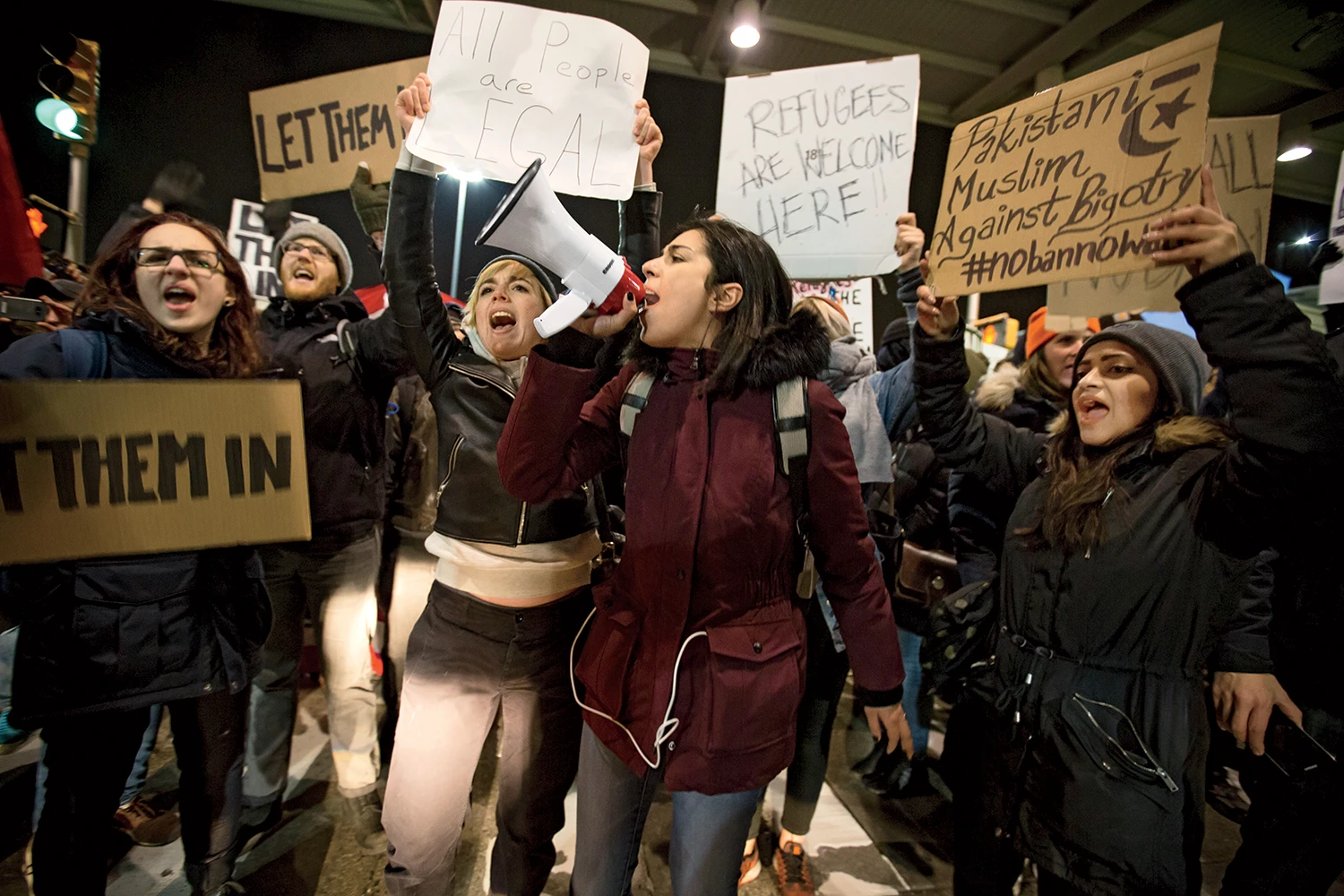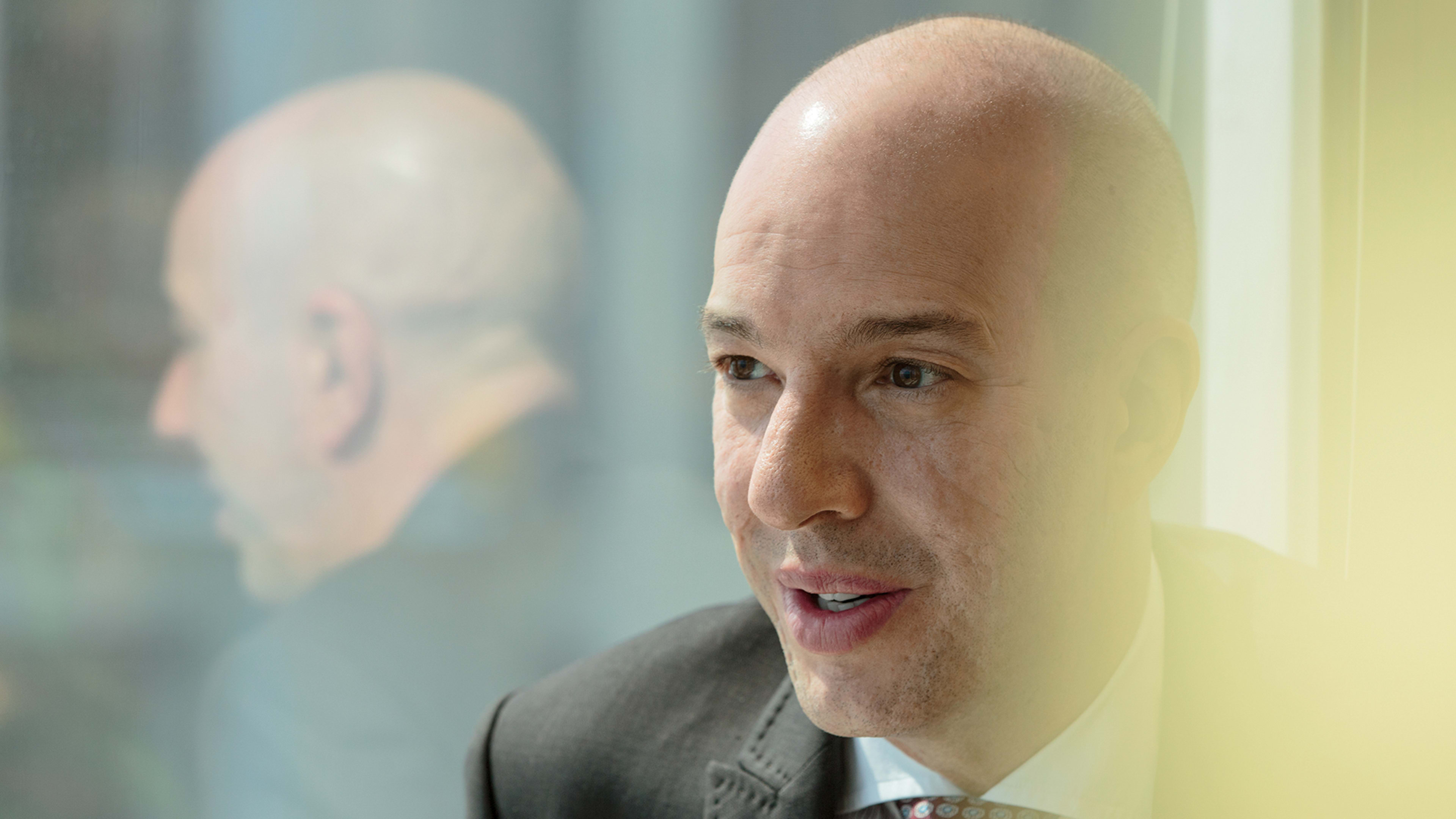Anthony Romero was the first one in his office on Wednesday, November 9, 2016. The executive director of the American Civil Liberties Union (ACLU) sat at his desk, which overlooks the Statue of Liberty from lower Manhattan, and wrote a combative letter to then–president-elect Donald Trump. In it, he vowed that “the full firepower” of his organization would be deployed against any attempts by the new administration to encroach on the Constitution. In the months since, the ACLU has blocked the two so-called travel bans targeting predominantly Muslim countries and launched new tools to help organize protesters and lobby lawmakers. It’s taken in $83 million in donations and increased membership fourfold to 1.6 million people. In Romero’s 16 years as executive director, the ACLU has often been on the front lines of cultural controversy, helping lead landmark fights against “don’t ask, don’t tell” in 2010 and for marriage equality in 2015. “We will get tested, and we will sometimes lose, but we will always be in the fight for the right reasons,” Romero told his staff on November 9. Here’s how he keeps the pugnacious 97-year-old nonprofit—which has challenged Republicans and Democrats alike—at the forefront of national affairs.
Lead With Empathy
Romero became executive director of the ACLU one week before the September 11, 2001, attacks. While he anticipated that the strikes might lead to increased nationalism and an erosion of civil liberties, Romero decided his first move should address the country’s mood. In a press release, he sounded a patriotic note, pledging that the ACLU would “work with our national leaders in their fight to bring those responsible for this tragedy to justice.” Though some ACLU staffers disagreed with this sentiment, Romero was laying the foundation for the nonprofit’s future efforts. “Our client, the American people, was grieving and stunned and afraid,” he recalls. “[I said to the staff,] ‘We have to make sure the public is ready to hear us.’ ” Once the Bush administration began to detain and deport immigrants, though, the ACLU jumped to respond.
Prepare For The Radically Unexpected
More than six months before much of the American public was blindsided by Trump’s election, Romero directed his staff to compile a detailed report on what a Trump presidency might mean for civil liberties. “Everyone was talking about Clinton, Clinton, Clinton. We had to have a Trump plan, because if he were to be elected, the challenges would be too great to [address] on the fly,” says Romero. The 27-page document, published in July 2016, took all of the candidate’s rhetoric on issues like immigration and abortion literally and seriously, and offered a clear defense against possible policy positions. The memo, which laid out the arguments that later persuaded judges to temporarily block the first immigration ban, has served as a practical playbook.

Attack From All Angles
Though the ACLU’s most visible campaigns have national implications, many of its legal battles are waged on the state level. Romero has poured resources into its 53 affiliate offices—especially in states like Texas and Ohio, where precedent-setting cases are often litigated—a strategy that helps the ACLU challenge issues through a variety of simultaneous lawsuits. “We can have one perfect case with the best clients, filed in the right jurisdiction,” says Romero. “[But] I think the right strategy is to file as many of these lawsuits as we can.” When the revised immigration ban was announced in March, the ACLU didn’t have to scramble to file new cases or find clients because it already had 15 legal actions in process in several states. The Maryland case that temporarily halted the ban just nine days later was one the ACLU had set into motion in January.
Recognize your brand’s excellence by applying to this year’s Brands That Matter Awards before the early-rate deadline, May 3.
